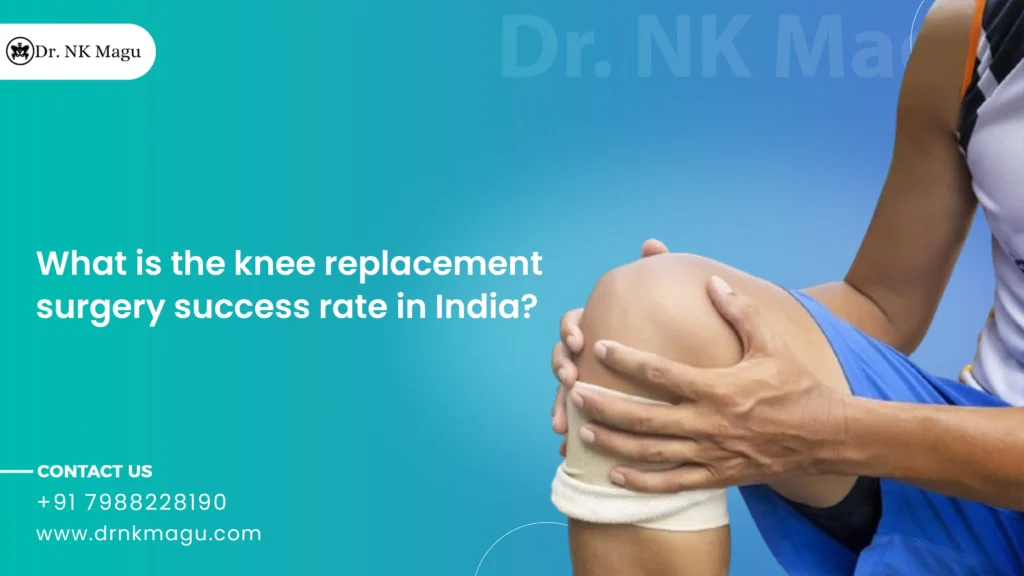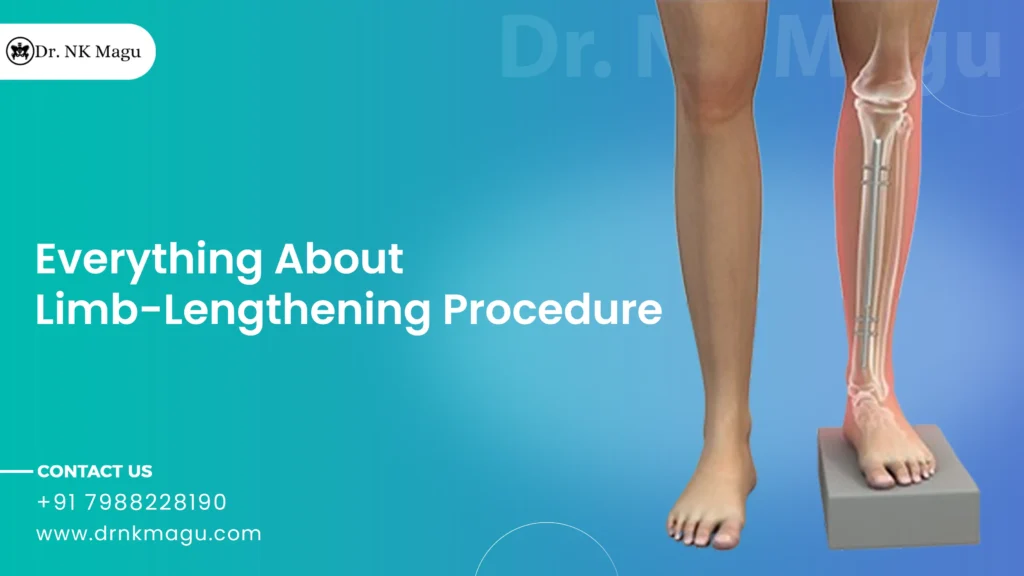Unlock newfound mobility and vitality with India’s premier destination for the best hip replacement surgeon in India, Dr. (Prof). N.K. Magu. Renowned for his expertise and armed with more than 3 decades of dedicated practice and experience and stands as a beacon of excellence in hip replacement surgery. Our center specializes in both total and partial hip replacement surgeries in India, ensuring tailored solutions that restore comfort and quality of life for every patient. Rediscover freedom of movement and experience world-class care at the hands of a leading expert in the field.
If you are searching for a trusted and best hip replacement surgeon in India, look no further. Hip replacement surgery is a common procedure that aims to alleviate hip pain and restore mobility to patients. With our esteemed Dr. (Prof) N. K. Magu’s tailored solutions, patients can enjoy a life free from the limitations of a cane, walker, or wheelchair. Dr. (Prof) N. K. Magu is committed on providing world-class care and support to every individual and patient, ensuring a comfortable and seamless experience. Contact us today to learn more about how we can help you regain your mobility and quality of life.
What is Hip Replacement?
The hip replacement process involves taking out old or broken hip joints and replacing them with a prosthesis or an artificial joint made to look like the real thing. A ball and a socket, which can be constructed of ceramic, plastic, or metal, make up this kind of joint. After hip replacement surgery, the patient can resume his daily activities as the discomfort is relieved.
A metal implant is used to replace a hip joint that has been surgically removed by a physician to ease discomfort. This process results in an artificial hip joint. Hip replacement surgery is not determined by the patient’s age or weight, nor are they restricted by it. The treating surgeon must, above all, evaluate the patient’s state at the time of surgery and decide on the best course of action. Patients of various ages have had successful hip replacement surgeries.
Why Choose Dr. (Prof) N. K. Magu For Hip Replacement?
Leading orthopedic surgeon in Delhi, Dr. (Prof). N. K. Magu has completed more than 1000 primary hip and primary knee replacement procedures in recent years. With over 3 decades of experience, Dr. (Prof). N. K. Magu is a specialist known for total and partial hip replacement surgery. He uses biological methods and implants with the highest safety record and the lowest risk of complications and revisions in addition to his dedication to surgical excellence and unmatched aftercare. This allows him to provide the best outcomes and unmatched aftercare.
Conditions That Require Hip Replacement Surgery
Rheumatoid arthritis: Rheumatoid arthritis is linked to inflammation brought on by an overactive immune system. This inflammation wears away cartilage and occasionally even the underlying bone, resulting in joints that are damaged and misshapen.
Osteoarthritis: This condition is characterized by inflammation of the cartilage that covers the ends of bones and facilitates joint motion. The term “wear and tear arthritis” is frequently used to describe it because of the cartilage degradation.
Developmental dysplasia of the hip: The disorder known as developmental dysplasia of the hip (DDH) affects infants and young children where the hip’s “ball and socket” joint fails to form normally. Hip dysplasia or congenital dislocation of the hip are other names for it. The femur, or thigh bone, is joined to the pelvis by the hip joint.
Osteonecrosis: If there is not enough blood flow to the area of the hip joint that houses the ball, the ball section may collapse and distort.
Some indications that you could be a suitable candidate for hip replacement include the following:
- The feeling of discomfort doesn’t go away with painkillers.
- Walking increases the condition, even with a cane or walker.
- Cause you to have problems falling asleep.
- Making it tough for you to go up or down stairs.
- Sitting down is hard.
Helpful:- Hip Replacement Surgery Cost in India
Types of Hip Replacement Surgery
Your potential need for a hip replacement depends on several factors. Each of the following will be taken into account by your doctor when arranging your care.
Total and Partial Hip Replacement:
Both the ball and the socket are replaced during total hip replacement, also known as total hip arthroplasty. Only the ball and the femur head are replaced in a partial hip replacement.
How will the Surgeon Gain Access to the Hip?
The hip can be accessed by an orthopedic surgeon from many perspectives. There are three typical methods to reach the hip joint:
- From the front (hip replacement using an anterior approach)
- From the side (using lateral hip replacement technique)
- From the rear (hip replacement via the posterior method)
Minimally Invasive Hip Replacement
The goal of minimally invasive hip replacement is to reduce the amount of damage that surgery causes to healthy tissues, including blood vessels and muscles. Although anterior hip replacement has been promoted as a minimally invasive procedure, modern orthopedic surgeons employ minimally invasive methods for all hip access surgical approaches. Your surgeon will talk about the possible best course of action.
When doing minimally invasive surgery, the hip joint is accessed by the surgeon by shifting the muscles aside through one or two small incisions. This strategy might offer benefits like:
- Reduced chance of muscular injury
- Reduced pain
- Greater ease and speed of recovery
- Reduced limping
- shorter hospital stay
- Decreased risk of hip dislocation
For certain people, a minimally invasive hip replacement is not suitable. The surgeon will determine whether or not you are a good candidate based on your age, weight, degree of fitness, and other criteria.
Traditional Hip Replacement
A single, wide incision is made during a traditional hip replacement to assist the surgeon in reaching the hip. This access is often obtained from the back (posterior approach) or the side (lateral approach).
Because the surgeon must cut through or separate some muscles and tendons in order to reach the joint, recovery following a typical hip replacement may take some time. (Once the hip implants are in place, the muscles and tendons are healed.) A dislocation could happen to you until all of the supporting elements in your new hip have healed. To know which surgical strategy could be ideal for you, consult with your orthopedic hip surgeon.
Helpful:- Hip Arthroscopy Cost in India
Conclusion
Surgery of any kind, particularly if it involves replacing a physical component with a prosthesis, can be stressful. However, hip replacements are incredibly successful, safe, and effective operations. Ask your doctor if a hip replacement would be a good option for you if you’re having symptoms like pain, stiffness, or difficulty moving your hip.
You’ll need time to mend your body and build up your muscles after surgery. Don’t rush your recuperation; instead, take your time. Discuss your mobility objectives and desired activities following your hip replacement with your surgeon or physical therapist.














